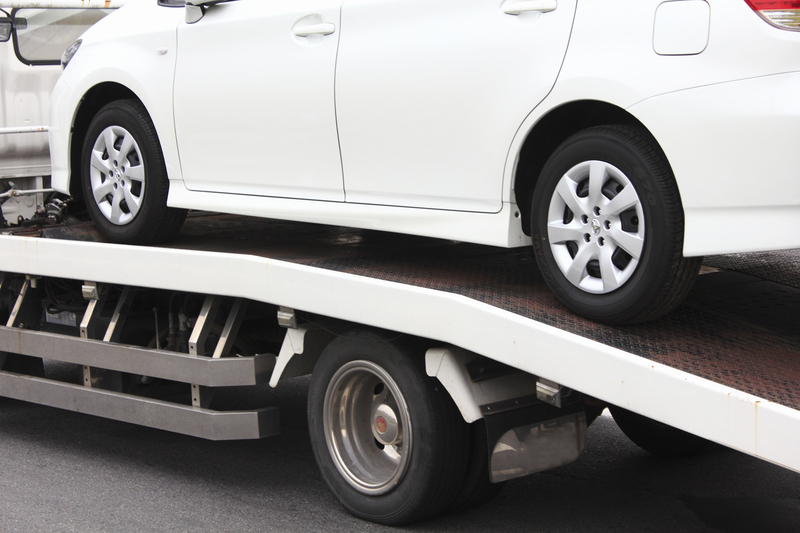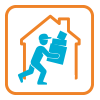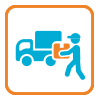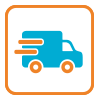Practical Advice for Bed and Mattress Moving Success
Posted on 29/05/2025
Practical Advice for Bed and Mattress Moving Success
Moving to a new home is always exciting, but transporting bulky furniture--especially beds and mattresses--can test anyone’s patience. Proper planning and practical techniques make a huge difference in ensuring your bed and mattress arrive without damage or hassle. In this comprehensive guide, we’ll provide top tips, step-by-step strategies, and expert recommendations for successful mattress and bed moving. Whether you’re hiring professionals or going the DIY route, these insights will help make the process smooth and stress-free.

Why Proper Bed and Mattress Moving Matters
Your bed and mattress are among the most important items in your home. They represent a significant financial investment as well as comfort and quality of sleep. Mishandling these items during a move can result in physical damage, stains, and even injury. Ensuring their safe transport not only protects your possessions but also gives you peace of mind in your new environment.
Common Challenges When Moving Beds and Mattresses
- Mattresses are heavy, floppy, and awkward to handle.
- Beds may require disassembly and careful labeling of hardware.
- Risk of dirtying or ripping the mattress fabric.
- Tight doorways and narrow staircases complicate navigation.
- Potential for back strain and injury without the right techniques.
With forethought and the right advice, you can overcome these challenges with ease.
Preparing for a Bed and Mattress Move
1. Gather the Appropriate Supplies
Preparation is everything for a successful mattress move. Before lifting a single piece, assemble all necessary materials:
- Mattress bag or cover: Protects against dirt, water, and damage.
- Furniture sliders: Reduces friction and makes moving large items easier.
- Moving straps or ropes: Helps carry and secure the mattress in the truck.
- Basic tools: For bed disassembly--screwdrivers, Allen wrenches, etc.
- Ziploc bags & markers: Keep hardware organized and easily identifiable.
- Blankets or padding: Prevents dings and scratches on bed frames.
- Measuring tape: Ensures pieces will fit through all spaces.
Pro Tip: You can purchase specialized mattress moving kits, which typically include covers, tie-downs, and padding for comprehensive protection.
2. Take Measurements
Measure all doorways, hallways, and staircases at both your current and new locations. Mark down the dimensions of your mattress and bed components. This preemptive step saves you from being surprised by tight spaces on moving day.
3. Disassemble the Bed Frame
Most beds must be taken apart before moving. Beds with complex frames or storage compartments require additional care:
- Remove the mattress and box spring first.
- Document each step with photos so reassembly is easy.
- Label all hardware and store in a sealed bag.
- Bundle slats, rails, and boards together using rope or movers’ wrap.
This preparation not only streamlines the moving process but also prevents lost or mixed-up parts.
Moving Your Mattress: Tips and Techniques
Using a Mattress Bag
One of the best practical mattress moving tips is to always use a mattress bag. These specially designed covers, made from heavy-duty plastic, guard against:
- Dirt and mud
- Rain and moisture
- Tears and scrapes
- Pests and allergens
Simply slide your mattress inside, seal the bag securely with tape, and feel confident your sleep space will remain clean and protected.
How to Lift and Carry a Mattress
Mattresses are not only cumbersome, but their floppy nature can lead to bending or folding if not handled properly. Here is a step-by-step guide for safe mattress moving:
- Get assistance: Never attempt to move a mattress alone--at least two people are necessary.
- Hold upright: Move the mattress on its side to fit through doors and hallways.
- Bend with your knees, not your back: Practice proper lifting posture to prevent injury.
- Use lifting straps: These can reduce the strain and make the mattress feel lighter.
- Avoid dragging: Dragging can damage both the mattress and your floors.
Tip: For memory foam or latex mattresses, take extra care. These can fold but may require more careful handling to avoid creasing or internal damage.
Navigating Tight Spaces
Mattresses are surprisingly flexible, which can work to your advantage through narrow corridors. Keep the mattress vertical, gently bend around tight corners, and move slowly. Take your time--rushing can result in bumps, scrapes, or even getting the mattress stuck!
Transporting the Mattress Securely
Loading the Vehicle
The safest way to move a mattress is in a moving truck or large van. Avoid transporting mattresses on the roof of a car if possible--it's unsafe, illegal in some areas, and exposes your mattress to the elements.
- Lay the mattress flat if possible; standing upright saves space but can cause sagging for some materials.
- Use tie-down straps or ropes to keep the mattress in place during transit.
- Cushion the mattress and frame: Place soft items like blankets or pillows for extra stabilization.
If you must place your mattress upright, lean it against a secure, flat surface, and strap it tightly to prevent shifting.
Unloading and Setup
Once you arrive, reverse the process with care:
- Carefully unstrap your mattress and bed frame components.
- Move each part inside according to your plan.
- Assemble the bed before unwrapping the mattress to reduce exposure to dust and dirt.
- Allow the mattress to air out before arranging sheets and bedding. This dissipates any odors or moisture.
Additional Practical Tips for Bed and Mattress Moving Success
Protect Your Bed Frame
Wooden and metal frames can be easily scratched during a move. Wrap every component in moving blankets, bubble wrap, or even old quilts for maximum protection. Pay particular attention to:
- Delicate edges and corners
- Decorative carvings and details
- Painted or varnished surfaces
Consider Professional Movers
While DIY mattress moving is possible, professional moving services offer added safety and convenience. Movers use specialized equipment, have years of experience, and are insured against mishaps. If your mattress is particularly large (California king, for example) or your home has tricky access points, hiring experts may be your best bet.
Take Care of Your Back
Injury prevention is a key aspect of bed and mattress moving success. Remember:
- Warm up before heavy lifting.
- Always lift with your legs, not your back.
- Say no if something feels too heavy or awkward--ask for help!
- If in doubt, use dollies or sliders wherever possible.
Protect Floors and Walls
Place mats, old sheets, or cardboard along traffic paths to guard against dings and scratches. Move slowly around corners, keeping all furniture elevated off the ground until fully in place.
Reassembling and Caring for Your Mattress After the Move
With your bed frame reassembled, give your mattress and bed a little attention:
- Inspect for damage: Look for torn fabric, lumpy spots, or bent corners. Report damage to your moving company if applicable.
- Clean if necessary: Vacuum your mattress and wipe down the frame before making the bed.
- Let the mattress breathe: Give it a couple of hours before applying sheets--especially memory foam, which can off-gas after being confined.
- Check for level alignment: Prevent sagging by confirming the frame is assembled properly and all slats are in place.
If you spot any serious issues--like broken springs or deep stains--consult your mattress manufacturer for guidance on warranty coverage or professional cleaning.
Eco-Friendly and Budget Considerations
Donating an Old Mattress or Bed Frame
If you’re upgrading your sleep setup, consider donating your old mattress and bed frame to a local charity or shelter. Many organizations will pick up clean, gently used mattresses and frames, saving you disposal fees while helping others in need.
Mattress Disposal and Recycling
Environmentally responsible mattress disposal keeps bulky items out of landfills and recycles valuable materials. Look for specialized mattress recycling centers in your area, or ask your retailer if they offer take-back programs with your new purchase.

Frequently Asked Questions about Moving Beds and Mattresses
Can I Move a Mattress Without a Truck?
It's not recommended to move a mattress without a covered vehicle. Roof transport should only be a last resort, as it exposes your mattress to weather, dirt, and potential flying hazards. Small moving vans or renting a cargo vehicle is best.
Should Mattresses Be Stored Flat or Upright?
Flat storage is preferable for most modern mattresses, especially those with springs. Long-term upright storage can cause filling to shift or springs to deform. Short moves are fine as long as the mattress is secured upright and not left for extended periods.
Is It Safe to Fold My Mattress?
Memory foam and latex mattresses can usually be gently bent or folded, but always check the manufacturer’s instructions. Never fold innerspring mattresses, as this can damage the coils.
Can I Move a Bed Without Disassembling It?
While it’s possible for small single or twin frames, larger beds almost always require partial or complete disassembly. This prevents damage to the bed and walls and makes moving easier and safer.
Conclusion: Mastering Mattress and Bed Moving
Moving your bed and mattress doesn't have to be a dreaded part of relocation. With the right preparation, supplies, and techniques, the experience can be smooth and even satisfying. Remember:
- Protect your investment with covers and padding.
- Don't rush--take the time to disassemble, label, and move carefully.
- Recruit help for heavy lifting and awkward angles.
- When in doubt, trust the professionals.
By following these practical pieces of advice for bed and mattress moving success, you'll be ready to settle into your new home with comfort, safety, and peace of mind.
Recommended Resources
- American Moving and Storage Association – Guidelines for safe furniture moving
- EPA Mattress Recycling Facts – Sustainable mattress disposal
- National Sleep Foundation – Mattress care and longevity tips
If you have additional questions or tips for moving beds and mattresses, add your comments below!
Latest Posts
Conquer Pre-Move-Out Cleaning with These Proven Tips
Harness the Power of Planning for Stress-Free Moves
Pack Smarter, Not Harder: Tips for Moving










